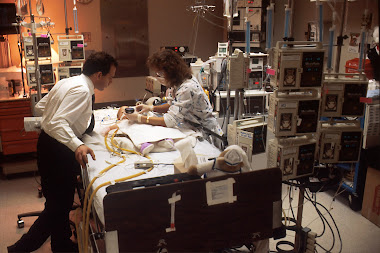Constipation: The Silent Killer Linked to Cancer
Constipation may seem like a minor inconvenience, but chronic constipation can have serious health consequences, including an increased risk of colon cancer. This is because constipation causes waste to remain in the colon for longer periods, leading to the formation of toxins that can damage the lining and eventually lead to cancer. In this article, we will explore the link between constipation and cancer, how constipation affects the body, and the steps you can take to prevent and treat constipation and reduce your risk of developing cancer.

Understanding Constipation and Its Causes
What is Constipation?
Constipation is a condition characterized by difficulty in passing stools, infrequent bowel movements, and hard, dry stools. It is a common digestive problem affecting people of all ages.
Causes of Constipation
Several factors contribute to constipation, including a diet low in fiber, dehydration, lack of exercise, certain medications, and medical conditions such as irritable bowel syndrome and thyroid disorders.
The Link Between Constipation and Cancer
Studies Confirming the Link
Studies have linked chronic constipation to an increased risk of developing colon cancer. According to the American Cancer Society, people who experience chronic constipation are at a higher risk of developing colon cancer than those who have regular bowel movements.
How Chronic Constipation Contributes to Colon Cancer
Chronic constipation can lead to the formation of polyps in the colon, which can become cancerous over time. The longer the stool remains in the colon, the greater the risk of developing cancer. Therefore, maintaining regular bowel movements is crucial in preventing colon cancer.
How Constipation Affects the Digestive System and Overall Health
Impact on Digestive Health
Chronic constipation can lead to further digestive issues, such as hemorrhoids, anal fissures, and diverticulosis. Hemorrhoids are swollen veins in the rectum that can be painful and cause bleeding. Anal fissures are tears in the lining of the anus that can cause pain and bleeding. Diverticulosis is a condition in which small pouches form in the colon wall, leading to inflammation and infection.
Complications Arising from Chronic Constipation
Aside from digestive issues, chronic constipation can also lead to other health problems such as urinary tract infections and decreased quality of life. It can affect sleep patterns, cause anxiety, and lead to increased use of laxatives, which can further aggravate the problem.
Identifying Symptoms of Constipation and Cancer
Signs of Constipation
Some common signs of constipation include infrequent bowel movements, difficulty passing stools, abdominal pain and bloating, and the sensation of incomplete evacuation.
Common Symptoms of Cancer
Some common symptoms of colon cancer include changes in bowel movements, blood in stool, abdominal pain and bloating, unexplained weight loss, and fatigue. It is important to consult a doctor if any of these symptoms persist. Early detection of cancer greatly increases the chances of successful treatment.
Prevention and Treatment of Constipation and Cancer
Constipation is a common health issue that can lead to serious complications, including colorectal cancer. However, there are steps you can take to prevent and treat constipation and the associated risk of cancer.
Preventing Constipation through Diet and Lifestyle Changes
The first line of defense against constipation is to make dietary and lifestyle changes. This includes increasing your fiber intake, drinking plenty of water, exercising regularly, and reducing stress levels.
Fiber-rich foods, such as fruits, vegetables, whole grains, and legumes, can help regulate bowel movements and prevent constipation. Drinking plenty of water is also essential for maintaining healthy bowel function. Exercise can help improve overall digestive health, reducing the risk of constipation.
Reducing stress levels can also help prevent constipation. Excessive stress can contribute to digestive issues, so incorporating relaxation techniques, such as yoga or meditation, can help alleviate stress and support healthy bowel function.
Treatment Options for Constipation and Cancer
If you are experiencing chronic constipation, there are several treatment options available. These include over-the-counter laxatives, prescription medications, and behavioral therapies.
It’s important to note that if constipation is a persistent issue, it’s vital to see your healthcare provider. They can help determine the underlying cause of your constipation and develop a treatment plan specific to your situation.
For individuals with cancer, treatment options may vary based on the type and stage of cancer. Options may include surgery, radiation therapy, chemotherapy, or a combination of treatments. Your healthcare provider can help determine the best course of action for your specific situation.
Dietary and Lifestyle Changes to Improve Bowel Movements and Reduce Cancer Risk
Making dietary and lifestyle changes can not only help prevent constipation but also reduce the risk of developing cancer.
Importance of Hydration
Proper hydration is essential for bowel function and can help reduce the risk of colon cancer. Drinking plenty of water and avoiding excessive alcohol and caffeine consumption can help maintain healthy bowel movements and support overall health.
Healthy Eating Habits
Eating a balanced diet made up of whole foods is essential for maintaining healthy bowel function and reducing the risk of cancer. Incorporating a variety of fruits, vegetables, whole grains, lean proteins, and healthy fats into your diet can help support overall health and digestive function.
Importance of Early Detection and Treatment for Cancer
While prevention is key, early detection and treatment are essential for individuals with cancer. Detecting cancer in its early stages provides the best chance for successful treatment and long-term survival.
Why Early Detection is Critical
Early detection can help prevent cancer from spreading and provide more treatment options. In addition, detecting cancer early may reduce the need for more invasive treatments, such as surgery or chemotherapy.
Treatment Options for Cancer
Treatment options for cancer will vary based on the type and stage of cancer. Options may include surgery, radiation therapy, chemotherapy, or a combination of treatments. It’s important to work closely with your healthcare provider to determine the best course of action for your specific situation.
Conclusion: Addressing Constipation for a Healthier Life
Maintaining regular bowel movements is essential for overall health and reducing the risk of cancer. By making dietary and lifestyle changes and seeking treatment when necessary, individuals can prevent and address constipation and its associated risks.
The Role of Regular Bowel Movements in Maintaining Good Health
Regular bowel movements are essential for maintaining good health. By keeping your digestive system functioning properly, you can reduce the risk of serious health complications, such as colon cancer. If you are experiencing chronic constipation or other digestive issues, it’s important to seek medical attention to determine the underlying cause and receive appropriate treatment. In conclusion, a healthy bowel movement is essential for good digestive health and overall well-being. By understanding the link between constipation and cancer and taking steps to improve your bowel movements through diet, lifestyle changes, and early detection of cancer, you can lower your risk of developing serious health conditions and enjoy a healthier life. Remember to prioritize your bowel health and seek medical attention if you experience prolonged constipation or other gastrointestinal symptoms.
Frequently Asked Questions
Is constipation always a sign of colon cancer?
No, constipation is not always a sign of colon cancer. However, chronic constipation can increase the risk of developing colon cancer over time.
How do I know if I’m constipated?
Signs of constipation include infrequent bowel movements, difficulty passing stools, hard or lumpy stools, abdominal pain, and bloating. If you are experiencing these symptoms regularly, it’s important to speak with your healthcare provider.
What lifestyle changes can I make to prevent constipation and reduce my risk of colon cancer?
You can prevent constipation and reduce your risk of colon cancer by eating a fiber-rich diet, drinking plenty of water, and engaging in regular physical activity. It’s also important to avoid smoking and excessive alcohol consumption.
How can I reduce my risk of colon cancer if I have chronic constipation?
If you have chronic constipation, it’s important to speak with your healthcare provider about your risk of colon cancer and to discuss appropriate screening options. Additionally, you can reduce your risk by following a healthy diet and lifestyle, avoiding processed foods, and getting regular exercise.
